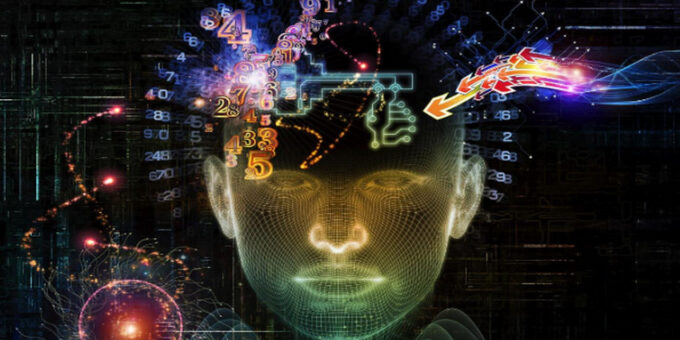
Artificial Intelligence (AI) is driving change across industries, reshaping how we interact with technology and solve problems. Its transformative potential is endless, making it a focal point for businesses, researchers, and governments worldwide.
What Is Artificial Intelligence?
AI refers to computer systems designed to perform tasks that typically require human intelligence. These tasks include decision-making, learning, and natural language processing. AI enables machines to analyze data, identify patterns, and make predictions.
From virtual assistants like Siri to recommendation systems on Netflix, AI already plays a significant role in daily life. It continues to evolve, becoming more sophisticated and versatile with each advancement.
Applications of AI in Everyday Life
1. Personalized Experiences
AI personalizes user experiences across platforms. For instance, streaming services suggest content based on viewing history. Similarly, e-commerce platforms recommend products tailored to individual preferences.
Personalization improves customer satisfaction, making interactions more engaging and relevant. Businesses use these insights to enhance loyalty and boost sales.
2. Healthcare Transformation
AI is revolutionizing healthcare with innovations like predictive diagnostics and robotic surgeries. Algorithms analyze medical data to detect diseases early. For instance, AI tools can identify signs of cancer in radiology images.
Moreover, AI-powered virtual health assistants remind patients to take medication and answer health-related questions. These advancements improve patient outcomes and make healthcare more accessible.
3. Autonomous Vehicles
Self-driving cars rely heavily on AI to navigate roads and avoid obstacles. AI processes sensor data to make real-time driving decisions. Companies like Tesla and Waymo are leading the charge in developing autonomous vehicles.
Autonomous technology reduces accidents caused by human error and enhances traffic efficiency. However, challenges like regulatory approval and public trust remain.
4. Education Reinvented
AI is transforming education through personalized learning platforms. These tools adapt to individual students’ needs, providing customized resources and feedback. For example, language learning apps like Duolingo use AI to tailor lessons based on progress.
Teachers benefit from AI-powered grading systems, saving time and improving accuracy. Virtual classrooms enable remote learning, making education accessible to more people globally.
How AI Is Changing Businesses
1. Improved Decision-Making
AI helps businesses analyze vast amounts of data quickly and accurately. Machine learning algorithms uncover trends and insights that were previously difficult to identify. These insights guide decision-making and improve efficiency.
For example, predictive analytics enables companies to forecast customer behavior. With this information, businesses can design better marketing strategies and optimize inventory.
2. Automation of Routine Tasks
AI automates repetitive tasks, freeing employees to focus on higher-value activities. Chatbots, for instance, handle customer inquiries, reducing wait times and improving service. Robotic process automation (RPA) manages administrative tasks like data entry and invoice processing.
Automation not only saves time but also reduces errors, ensuring consistent results. It allows businesses to scale operations without significantly increasing costs.
3. Enhanced Cybersecurity
AI plays a crucial role in protecting businesses from cyber threats. It identifies unusual patterns in network activity, flagging potential security breaches. AI-powered systems also predict and respond to emerging threats in real-time.
Companies use AI to secure sensitive data and ensure compliance with regulations. Enhanced cybersecurity builds trust and minimizes risks.
Challenges in Implementing AI
Despite its benefits, AI comes with challenges that require careful consideration. First, ethical concerns arise as AI systems make decisions impacting lives. Developers must address biases in algorithms to ensure fairness and inclusivity.
Second, data privacy is a significant issue. AI relies on vast amounts of data, raising questions about how it is collected and used. Companies must comply with regulations like GDPR to protect user information.
Finally, integrating AI into existing systems can be complex and costly. Businesses need skilled professionals to manage AI technologies effectively. Training employees and maintaining infrastructure are essential for success.
Future Trends in Artificial Intelligence
1. AI in Creative Industries
AI is increasingly contributing to creative fields like art, music, and design. Generative AI tools produce original content, helping creators explore new possibilities. For example, AI-generated artwork and music compositions are gaining popularity.
2. Human-AI Collaboration
The future of AI lies in collaboration with humans rather than replacement. AI augments human capabilities by handling data-driven tasks, while humans focus on creativity and critical thinking. This partnership drives innovation across sectors.
3. Explainable AI
As AI systems become more complex, explainability is crucial for building trust. Explainable AI focuses on making algorithms transparent and understandable. This ensures accountability and helps users make informed decisions.
4. AI in Sustainability
AI is playing a role in addressing global challenges like climate change. For instance, AI optimizes energy usage in smart grids and predicts environmental changes. These applications support sustainable development goals and reduce carbon footprints.
Conclusion
Artificial Intelligence is transforming technology and shaping the future of innovation. Its applications in daily life, businesses, and industries highlight its immense potential. While challenges like ethics and privacy remain, ongoing advancements promise even greater possibilities. Embracing AI responsibly ensures a brighter, more efficient future for all.